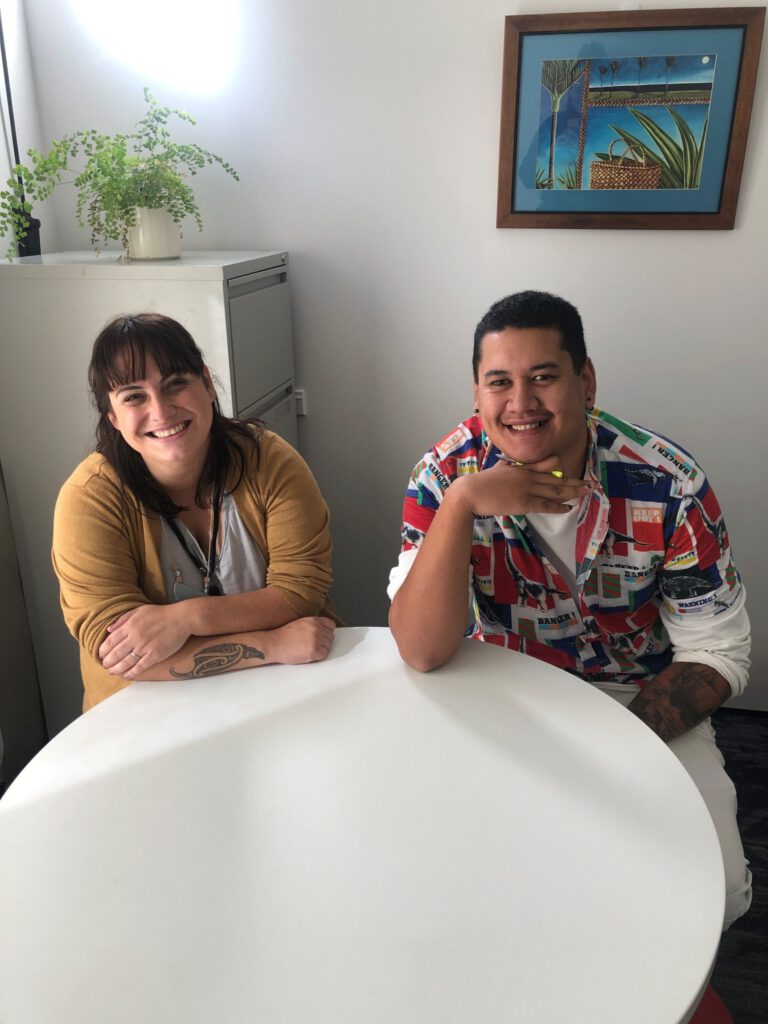
A rough start need not dictate the course of a lifetime. The right support provided at the right time can set shaky feet onto a firm path towards a flourishing life.
The Christchurch Methodist Mission (CMM) has supported children, adults and older people to flourish for more than 80 years. And for years, it has supported the people of Ōtautahi, the West Coast and Upper South Island through its growing provision of social, transition and emergency housing. In the middle of 2021, CMM got the opportunity to combine its areas of expertise through a contract to provide supported accommodation to rangatahi.
Practice Leader of CMM’s Social Services team, Kallysa Hollis, explains that nine months ago CMM secured an Oranga Tamariki (OT) contract to support the transition of 16 to 21-year-olds exiting the government agency’s care.
Under the contract, CMM is responsible for providing safe, stable and supported accommodation for rangatahi, while working with them to develop the life and interpersonal skills they need to thrive in adult life.
Kallysa says that taking on the work felt like a natural progression – and an exciting one.
“We were already working with OT through our whānau and tamariki support activities. When this contract came up, we saw it as an opportunity to combine our passion with the knowledge and expertise of our colleagues working in housing in the wider CMM organisation.
In not the most auspicious of starts, the new contract began just as the Government shut down Aotearoa New Zealand in August of 2021, responding to community transmission of COVID-19.
“We had just got our youth workers on board – day one – and the next day we went into lockdown. So they had a really exciting induction period!”
Despite the disruption, the wheels still kept turning and things got up and running.
The transition process starts with OT referring eligible rangatahi to CMM. The youth workers then come alongside the young person to determine the accommodation and support that will best meet their needs.
Kallysa says that the idea of living independently appeals to all rangatahi that CMM has supported so far – whether from a care or a custody environment.
“All of them are excited by the potential prospect of having their own space – a place that they can call their own, that feels safe. As part of the referral process we ask them whether they want to live by themselves or in shared accommodation. They all say that they want to live alone.”
When you’re 17, living by yourself in a flat may sound like a great idea but in reality, they can find it hard to cope. It can get lonely.
But Kallysa says that some of the younger ones don’t really understand the realities of that. “When you’re 17, living by yourself in a flat may sound like a great idea but in reality, they can find it hard to cope. It can get lonely.”
“So it’s important that we weigh up their history when settling their living arrangements.”
To cater to the varying needs, CMM has secured different types of accommodation – a five-bedroom-house, two two-bedroom units and three one-bedroom units.
CMM rents the properties from the private market. “We have a great tenancy manager who does a spectacular job in wooing the landlords,” says Kallysa.
CMM takes on the lease, then lets the properties to the young people referred for support. Kallysa says the arrangement is appealing for landlords. “There are no concerns about the rent being paid. We do all the property checks. We do all the repairs. They will get their property back in the condition they rented it to us. So for landlords, it’s actually a sweet deal.”
The rent charged to the young tenants is kept at a reasonable level. A youth worker journeys alongside as they settle in, working on their independent living skills. Those skills range from budgeting, cooking, to keeping the place in order for inspections and help is individually tailored to the young person’s needs.
Rangatahi referred to CMM can stay in supported accommodation until they are ready to move on, or until they are 21.
As a relative newcomer to youth housing, Kallysa says that it has been really helpful having a collaborative working relationship with the other OT contractor in Ōtautahi providing supported accommodation.
The other contractor is a collaboration of kaupapa Māori provider Purapura Whetu, mental health service providers Stepping Stones Trust and addictions service Odyssey House.
“We all started this work at the same time and are working closely together. It’s not often that you get that in the NGO-social services space. But we’ve all got the same passion for young people to transition to independence. It’s proving a really positive experience.”
If it’s proving a positive experience for the organisations delivering the support, the rangatahi of Ōtautahi can only but benefit.

CMM Practice Leader Kallysa Hollis and youth worker Jon Whaanga
